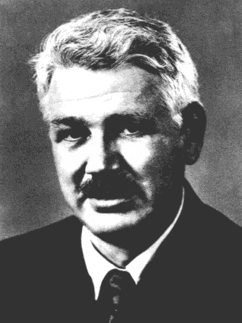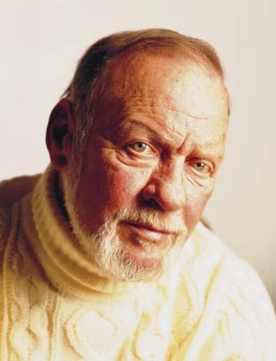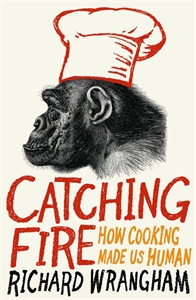Related Research Articles

Anthropology is the scientific study of humanity, concerned with human behavior, human biology, cultures, societies, and linguistics, in both the present and past, including archaic humans. Social anthropology studies patterns of behavior, while cultural anthropology studies cultural meaning, including norms and values. The term sociocultural anthropology is commonly used today. Linguistic anthropology studies how language influences social life. Biological or physical anthropology studies the biological development of humans.

Margaret Mead was an American cultural anthropologist, author and speaker, who appeared frequently in the mass media during the 1960s and the 1970s.

Carleton Stevens Coon was an American anthropologist and professor at the University of Pennsylvania. He is best known for his scientific racist theories concerning the parallel evolution of human races, which were widely disputed in his lifetime and are considered pseudoscientific by modern science.

Jared Mason Diamond is an American scientist, historian, and author. In 1985 he received a MacArthur Genius Grant, and he has written hundreds of scientific and popular articles and books. His best known is Guns, Germs, and Steel (1997), which received multiple awards including the 1998 Pulitzer Prize for general non-fiction. In 2005, Diamond was ranked ninth on a poll by Prospect and Foreign Policy of the world's top 100 public intellectuals.

Sarah Hrdy is an American anthropologist and primatologist who has made major contributions to evolutionary psychology and sociobiology. She is considered "a highly recognized pioneer in modernizing our understanding of the evolutionary basis of female behavior in both nonhuman and human primates". In 2013, Hrdy received a Lifetime Career Award for Distinguished Scientific Contribution from the Human Behavior and Evolution Society.
The Caucasian race is an obsolete racial classification of humans based on a now-disproven theory of biological race. The Caucasian race was historically regarded as a biological taxon which, depending on which of the historical race classifications was being used, usually included ancient and modern populations from all or parts of Europe, Western Asia, Central Asia, South Asia, North Africa, and the Horn of Africa.

Napoleon Alphonseau Chagnon was an American cultural anthropologist, professor of sociocultural anthropology at the University of Missouri in Columbia and member of the National Academy of Sciences. Chagnon was known for his long-term ethnographic field work among the Yanomamö, a society of indigenous tribal Amazonians, in which he used an evolutionary approach to understand social behavior in terms of genetic relatedness. His work centered on the analysis of violence among tribal peoples, and, using socio-biological analyses, he advanced the argument that violence among the Yanomami is fueled by an evolutionary process in which successful warriors have more offspring. His 1967 ethnography Yanomamö: The Fierce People became a bestseller and is frequently assigned in introductory anthropology courses.

Richard Walter Wrangham is an English anthropologist and primatologist; he is Professor of Biological Anthropology at Harvard University. His research and writing have involved ape behavior, human evolution, violence, and cooking.

Dan Sperber is a French social and cognitive scientist, anthropologist and philosopher. His most influential work has been in the fields of cognitive anthropology, linguistic pragmatics, psychology of reasoning, and philosophy of the social sciences. He has developed: an approach to cultural evolution known as the epidemiology of representations or cultural attraction theory as part of a naturalistic reconceptualization of the social; relevance theory; the argumentative theory of reasoning. Sperber formerly Directeur de Recherche at the Centre National de la Recherche Scientifique is Professor in the Departments of Cognitive Science and of Philosophy at the Central European University in Budapest.

Melvin Joel Konner is an American anthropologist who is the Samuel Candler Dobbs Professor of Anthropology and of Neuroscience and Behavioral Biology at Emory University.

Cora Alice Du Bois was an American cultural anthropologist and a key figure in culture and personality studies and in psychological anthropology more generally. She was Samuel Zemurray Jr. and Doris Zemurray Stone-Radcliffe Professor at Radcliffe College from 1954. After retirement from Radcliffe, she was Professor-at-large at Cornell University (1971–1976) and for one term at the University of California, San Diego (1976).

George Emanuel Marcus is an American professor of anthropology at the University of California, Irvine who focuses on the anthropology of elites.
Richard Price is an American anthropologist and historian, best known for his studies of the Caribbean and his experiments with writing ethnography.

Catching Fire: How Cooking Made Us Human is a 2009 book by British primatologist Richard Wrangham, published by Profile Books in England, and Basic Books in the US. It argues the hypothesis that cooking food was an essential element in the physiological evolution of human beings. It was shortlisted for the 2010 Samuel Johnson Prize.
Hugh Gusterson is an English anthropologist at the University of British Columbia and George Washington University. His work focuses on nuclear culture, international security and the anthropology of science. His articles have appeared in the LA Times, the Boston Globe, the Boston Review the Washington Post, the Chronicle of Higher Education, Foreign Policy, and American Scientist. He is a regular contributor to the Bulletin of the Atomic Scientists and has a regular column in Sapiens, an anthropology journal.
Sexual division of labour (SDL) is the delegation of different tasks between the male and female members of a species. Among human hunter-gatherer societies, males and females are responsible for the acquisition of different types of foods and shared them with each other for a mutual or familial benefit. In some species, males and females eat slightly different foods, while in other species, males and females will routinely share food; but only in humans are these two attributes combined. The few remaining hunter-gatherer populations in the world serve as evolutionary models that can help explain the origin of the sexual division of labour. Many studies on the sexual division of labour have been conducted on hunter-gatherer populations, such as the Hadza, a hunter-gatherer population of Tanzania. In modern day society, sex differences in occupation is seen across cultures, with the tendency that men do technical work and women tend to do work related to care.
Social anthropology is the study of patterns of behaviour in human societies and cultures. It is the dominant constituent of anthropology throughout the United Kingdom and much of Europe, where it is distinguished from cultural anthropology. In the United States, social anthropology is commonly subsumed within cultural anthropology or sociocultural anthropology.
Leslie Crum Aiello is an American paleoanthropologist and professor emeritus of University College London. She was the president of Axel Lennart Wenner-Gren donated Wenner-Gren Foundation for Anthropological Research from 2005 to 2017. In 2014, Aiello was elected to the American Philosophical Society. She is currently president of the American Association of Physical Anthropologists.
Christopher Boehm (1931–2021) was an American cultural anthropologist with a subspecialty in primatology, who researched conflict resolution, altruism, the evolution of morality, and feuding and warfare. He was also the Director of the Jane Goodall Research Center at University of Southern California, a multi-media interactive database focusing on the social and moral behavior of world hunter gatherers. Boehm died on November 23, 2021, at the age of 90.
Peter Thorpe Ellison is an American anthropologist who researches human reproductive ecology. His work has been recognized with a Guggenheim Fellowship and membership of the National Academy of Sciences, among other honors. He has also served as the editor-in-chief of the American Journal of Human Biology and American Journal of Physical Anthropology and editor of Annual Review of Anthropology.
References
- 1 2 "Greg Laden". ScienceBlogs. Retrieved 10 April 2016.
- 1 2 Wrangham, Richard; Jones, James; Laden, Greg; Pilbeam, David; Conklin-Brittain, NancyLou (December 1999). "The Raw and the Stolen. Cooking and the Ecology of Human Origins" (PDF). Current Anthropology. 40 (5): 567–594. doi:10.1086/300083. ISSN 0011-3204. PMID 10539941. S2CID 82271116.
- ↑ Zhang, Zara (29 September 2014). "Pioneering Anthropologist, Prolific Teacher, Dies". The Harvard Crimson. Retrieved 10 April 2016.
- ↑ "Greg Laden". Slate. Retrieved 10 April 2016.
- ↑ "Better health in early man linked to fire and veggies". Deseret News. Reuters. 12 August 1999. Archived from the original on April 20, 2016. Retrieved 10 April 2016.
- ↑ Rosenberg, Paul (13 October 2015). "Wrong, wrong, wrong: The anti-science bullsh*t which explains why the right gets away with lies — and why the mainstream media lets them". Salon. Retrieved 10 April 2016.
- ↑ Chowdhury, Sudesnha (3 February 2014). "Bill Nye vs. Ken Ham: Should scientists bother debating creationists?". Christian Science Monitor. Retrieved 10 April 2016.